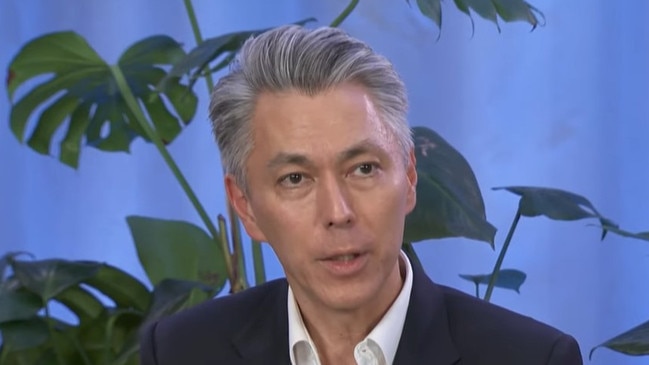
Two decades ago the unions dominated BHP, Rio Tinto and most of the Pilbara iron ore mines.
But enlightened companies won the support of their workforce — and union power in the Pilbara, like most sectors of private sector Australia, is now much reduced. Productivity has soared.

When the Albanese government came to power in 2022 it began working with the unions to sharpen their attack weapons to lift union membership, including regaining their power over old foes like BHP and Qantas.
Accordingly, the new industrial relations act gives unions much greater power of entry and worker access and is aimed to restore membership levels, albeit productivity may suffer.
When assembling the union attack weapons the Albanese government didn’t realise an attack on Pilbara productivity would be a long-term blow to the nation’s revenue base, because mining provides over half of all corporate tax revenue.
And when the government was framing the legislation, China’s demand for iron ore was booming. Two weeks before the industrial relations legislation came into operation China’s biggest steelmaker, Baowu, warned Canberra Chinese steelmakers faced a “long, harsh winter” which would keep iron ore prices down.
In Tuesday’s presentation, BHP said the iron ore market had plateaued, but it believed the riches of the Pilbara could enable further expansion.
The “hearts and minds” battle in the Pilbara will determine whether this long-term expansion takes place.
If union control is restored, and it substantially reduces productivity, then the new productivity rules will almost certainly spread to South Australia and jeopardise the massive copper expansion BHP is planning.
The latest BHP profit report shows the BHP iron ore business can stand an attack because it has costs under $US20 per tonne, where the total world industry marginal cost is around $US80 per tonne.
But longer term expansion will be important to maintain the levels of the workforce because the company is committed to greater automation. With automation of course comes a greater skills requirement.
Part of winning the “hearts and minds” of the Pilbara workforce will be sorting out the differences between contract labour and those employed by BHP staff.
The “same job, same pay” provisions of the act will require higher pay levels in many areas. But if those increased rewards are linked to lower productivity, then further investment in iron ore will not be warranted.
Australia has a lot hanging on the outcome of the Pilbara “hearts and minds” battle. If the end result is higher pay and lower productivity, then almost certainly it will infect copper production and make South Australia a much higher cost operation for BHP.
If South Australia is replaced by Chile, the US and other BHP overseas copper projects, then there will be considerable pressure on long-term Australian taxation revenue, and this pressure will be reflected in less social services available, including the NDIS program.
Accordingly, the whole nation has a stake in the outcome of the Pilbara battle.
But there is an extra hazard. Environment Minister Tanya Plibersek sent a shiver through the whole mining sector when she blocked a $1bn investment in a NSW gold mine on Indigenous interest grounds.

It shows a streak of anti-mining ruthlessness which may well be extended into environmental issues. It is arguable the Australian revenue base is as much threatened by Tanya Plibersek as it is by any fall in productivity as a result of union action.
As I pointed out yesterday, a key aim of the industrial relations legislation was to restore union membership levels in the Australian private sector workforce.
In the case of Qantas, the unions wasted no time taking Jetstar to court seeking to use dormant provisions in old enterprise agreements in the Jetstar operation.
If it succeeds it may spread through the airline industry, which simply means higher domestic airfares and substantial reduction in Qantas’s international operation.
The battle for the Pilbara and the activities of Tanya Plibersek have much wider national ramifications. In the mining sector such actions will dry up investments in Australia and reduce our taxation revenue base substantially. It becomes a huge national issue.
Meanwhile, the nervousness in the business sector was reflected in a throwaway line by BHP chief executive Mike Henry in his press conference.
After explaining the outlook for BHP’s high-quality metallurgical coal was strong because of India’s demand, he was asked if he considered expanding BHP’s Queensland metallurgical coal by buying adjoining mines. Without hesitation he rejected the idea. One of the reasons he gave was the political instability in Queensland.
Political instability is going to be a big national issue — but not just in Queensland.






A battle of great national significance has started in the Pilbara iron ore mines. The unions have already begun using their new rights of entry to try and win back the “hearts and minds” of Rio Tinto, BHP and other workforces involved in iron ore mining.